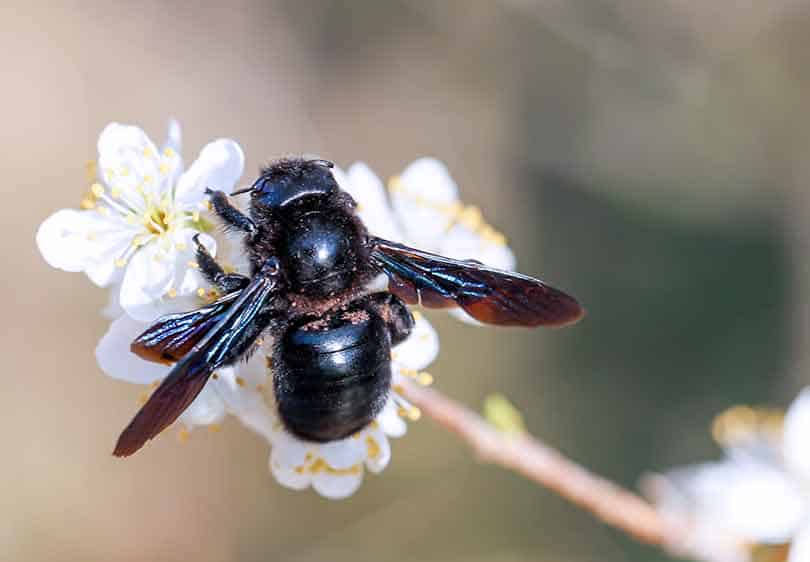Comprehensive Pest Control Solutions to Battle Vole Infestations
Vole invasions can quickly intensify, creating damages to landscapes, gardens, and yards. The impact of these little rodents can be significant and quick, demanding a detailed insect control approach to efficiently handle the circumstance. Comprehending the actions and biology of voles is important in devising an integrated technique that not only attends to the current problem but also protects against future incidents. By using a mix of identification, trapping, exclusion, and environment modification methods, expert pest control services can provide a customized solution to fight vole invasions. Nonetheless, the essential hinge on applying an all-round strategy that not only eliminates existing voles yet also develops long-term control procedures to safeguard against future intrusions.
Vole Identification and Examination
When checking for voles, look for their particular runways, burrow openings, and nibbled plant roots. Gnawed plant roots are an additional sign of vole task, showing their visibility and possible damage to greenery. By properly identifying these signs, bug control specialists can tailor their techniques to effectively manage vole problems and shield yards and backyards from additional harm.

Capturing and Removal Techniques
Efficient insect control approaches for handling vole problems usually involve utilizing specialized trapping and removal techniques. Capturing is an extensively utilized approach to record voles and transfer them away from properties.
When setting up traps, it is vital to guarantee they are put correctly and baited with vole-preferred food resources like peanut butter, seeds, or fruits. On a regular basis checking the catches is necessary to quickly get rid of caught voles and stop distress or damage to the pets. When trapped, voles should be moved to ideal habitats much from human residences to prevent re-infestation.
Furthermore, exemption methods, such as installing obstacles or fencing underground, can aid discourage voles from accessing specific locations. Correct disposal of captured voles and regular monitoring of vole activity are important parts of an effective capturing and elimination approach in vole infestation monitoring.
Exclusion and Barrier Approaches

By resolving these vulnerabilities and carrying out targeted exemption and barrier steps, residential or commercial property proprietors can significantly decrease the danger of vole problems. Ultimately, a combination of trapping, removal, and positive exemption actions can aid effectively handle vole populations and safeguard buildings from infestations.
Habitat Modification and Prevention
To alleviate vole problems, habitat adjustment and prevention methods concentrate on modifying the setting to inhibit vole habitation. One reliable technique is lowering the accessibility of food resources by maintaining lawn cut short, eliminating weeds and particles, and keeping a clean backyard. Voles are brought in to locations with thick plants and clutter, so creating open spaces can help deter them from settling in the location. In addition, minimizing excess wetness by fixing dripping pipelines, making certain proper water drainage, and removing standing water can make the atmosphere much less hospitable for voles.
Incorporating obstacles like crushed rock borders or cable mesh underground can likewise prevent voles from burrowing into gardens or backyards. By carrying out these habitat adjustments and prevention steps, home proprietors can proactively decrease the risk of vole problems and shield their outside areas from damage.
Tracking and Follow-Up Approaches

Follow-up approaches involve revisiting the treated areas to look for any type of signs of vole activity. Keeping an eye on stations, catches, and visual assessments are generally made use of techniques to assess the success of the bug control steps. By consistently examining these areas, pest control experts can quickly identify any revival of vole task and take aggressive actions to address the problem prior to it escalates.
In addition, documenting the outcomes of surveillance and follow-up activities is essential for tracking the progress of vole invasion control gradually. These documents assist in recognizing fads, examining the effectiveness of different control methods, and making notified decisions for future insect management approaches. Routine follow-up treatments not just assist in avoiding vole re-infestations yet likewise contribute to the general success of insect control initiatives.
Verdict
To conclude, comprehensive parasite control services are essential for efficiently combating vole infestations. By recognizing and examining vole populaces, applying capturing and elimination strategies, using exclusion and barrier approaches, changing habitats, and carrying out surveillance and follow-up techniques, residential or commercial property proprietors can effectively handle and prevent future invasions. It is important to resolve vole infestations without delay to stay clear of damages to building and potential wellness dangers.
By utilizing a combination of identification, exemption, environment, and trapping alteration techniques, specialist parasite control services can provide a tailored option to fight vole infestations (vole control service). By properly recognizing these indications, pest control professionals can tailor their strategies to efficiently handle index vole problems and protect gardens and backyards from more damage
Efficient insect control methods for managing vole problems commonly involve using specialized trapping and elimination methods.To mitigate vole invasions, habitat adjustment and avoidance strategies concentrate on changing the environment to inhibit vole habitation.Normal tracking and follow-up procedures are crucial in keeping vole problem control steps and guaranteeing long-lasting success in pest management.
Comments on “Discovering Reliable Solutions in Vole Control Utah”